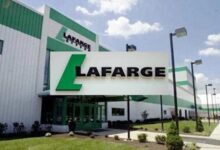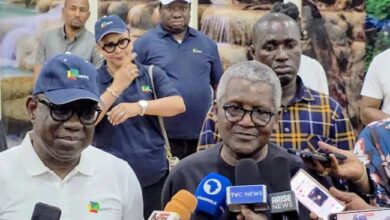Nigeria’ll grow auto sector with CNG, Electric Vehicles – NADDC
 The Nigerian automotive industry is gearing up for a significant transformation with focus on Compressed Natural Gas (CNG) and Electric Vehicles (EVs).
The Nigerian automotive industry is gearing up for a significant transformation with focus on Compressed Natural Gas (CNG) and Electric Vehicles (EVs).
The Director-General of the National Automotive Design and Development Council (NADDC), Joseph Osanipin, told the News Agency of Nigeria(NAN) in Abuja that Nigeria’s abundant natural resources were key to this transformation.
“On EVs, Nigeria has a very good advantage if we pursue EVs as well as CNG parts.
“The advantage in CNG is because we have natural gas in abundance, it naturally makes it cheaper for us to go that route.
FG attracts $50m investment for conversion of commercial buses to CNG
“Again, we have the technical know-how and the component parts,” he said.
According to Osanipin, many are already thinking of manufacturing cylinders, fossils, and many other CNG components in Nigeria.
He said the push for CNG and EVs was about technological advancement and economic benefits for the country.
“Investors see Nigeria’s large and growing youth population as a prime opportunity, with the population and Nigeria’s economy, investors know this is where to invest, “ he said.
On the benefits of CNG, the director-general said producing these components locally would force down the prices of some of these parts and even the price of new vehicles.
Osanipin said part of the strategy required using a deletion policy, where imported parts were gradually removed from the locally assembled vehicles, thus making our vehicles more competitive in price.
According to the NADDC boss, the council aimed to leverage these advancements to create more jobs and increase technological transfer.
The director-general also credited the propelled auto industry to the Tinubu-led administration’s focus on ease of doing business and digital innovation.
According to him, digital innovation has significantly influenced NADDC’s operations by helping it gather data easily, advise on specialisation, and track vehicle registration across the country, among other things.
Osanipin said that to further support the Nigerian automotive industry, NADDC would inaugurate a vigorous campaign to raise awareness about locally assembled vehicles.
“We are going to visit media houses to let them know our reality.
“We want to sensitise Nigerians about the benefits of buying locally made vehicles.”
“This campaign will highlight the activities of the council and the achievements of local assemblers, promoting the quality and availability of Nigerian-made vehicles,” he said.












